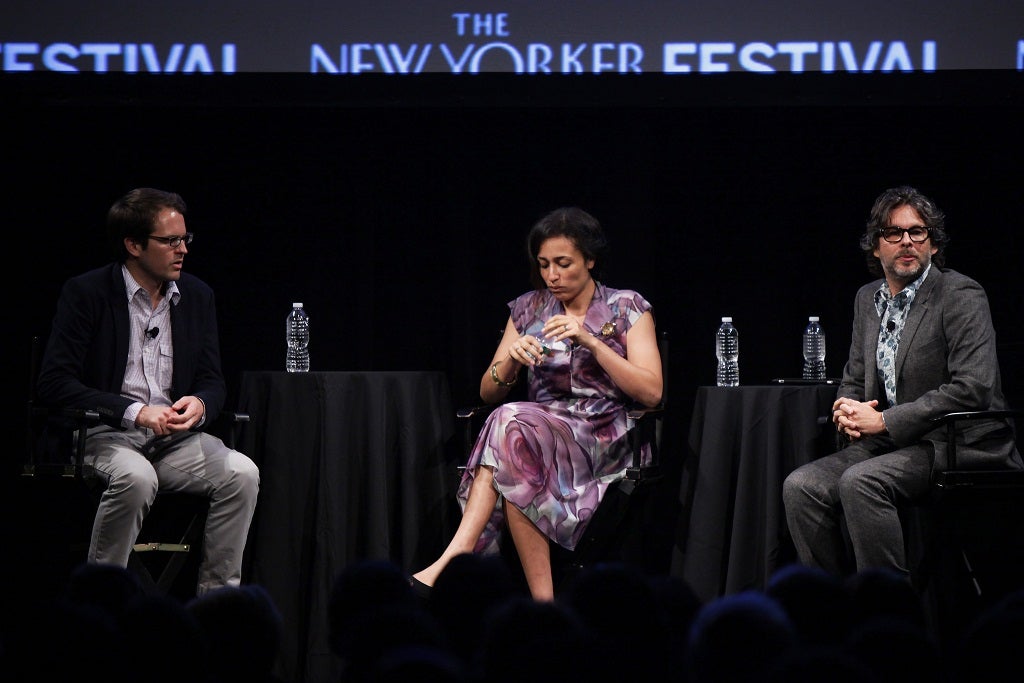It’s comforting to move among liberals – but you get fewer laughs
Zadie Smith says she has not met any nice, intelligent Conservatives. Perhaps she should get out more. They're a far funnier bunch than the lefties.

There comes a point in a person’s intellectual life (in mine, at least) when the usual comforting signposts to the political right or left become meaningless. One loses track of which camp one belongs to. I have received an email inviting me to “sod off to the Daily Mail where you belong” and, a few months later, was described on The Independent’s message-board, rather oddly under the circumstances, as “a typical Guardian-reading leftie”.
It is quite possible, one discovers, to oppose Castro’s locking up of writers, or the despoiling of the British countryside, or excessive nannying of offensive songs or comedy – all apparently symptoms of a right-wing mentality – while also disliking private education and the excesses of capitalism, ideas which are generally thought to belong to the other team.
Socially, though, it is rather different. The behavioural divide between left and right remains in place, as recent remarks by the novelist Zadie Smith confirmed. “I would love,” she said, “to meet a nice, reasonable, intelligent Conservative, who’s a lovely person, but where are they?”
Perhaps she should get out more. There are, of course, lovely Conservatives, as well as intelligent and reasonable ones, although it is admittedly more difficult to find all those qualities in one person.
It may be easier to move among liberals, who have more curiosity about others, are usually less blinkered and generally kinder, but, on the other hand, there will probably be fewer laughs.
It is a matter of personal embarrassment that, as a reader, I have always been more likely to be amused by a novel by Kingsley Amis, an article by PJ O’Rourke, Auberon Waugh or (on a good day) Julie Burchill, a letter by Philip Larkin, than by a scathing piece of social satire from a liberal-minded humorist.
There are, of course, good comic polemicists on the left but, watching even the best left-wing comedians, I am aware that, while I am laughing with scorn and disapproval at bankers or MPs, I am part of a smug liberal establishment. It feels too easy.
The position of the right-wing comic writer is that, unlike the opposition, he is uninterested in changing things. He is on the sidelines, looking on, hands in pockets, laughing. That position may be reprehensible and immature but, for me at least, it is funnier. It has that essential element of great comedy, childishness. The fact that it is irresponsible actively adds to its effect.
No one embodied this unworldliness, and the trouble it can cause, better than PG Wodehouse and his notorious wartime broadcasts. “The only concession I want from Germany,” he said in 1941, “is that she gives me a loaf of bread, tells the gentlemen with muskets at the main gate to look the other way, and leaves the rest to me. In return, I am prepared to hand over India, an autographed set of my books, and to reveal the secret process of cooking sliced potatoes on a radiator.”
Perhaps what one finds funny is more revealing than one would like to think. My favourite female comic writers – Cynthia Heimel, AL Kennedy, Caroline Aherne – are probably on the liberal side of things. I suspect that a right-wing stand-up comedian would give me the creeps.
All the same, it would be a great step towards civility and understanding if, after Zadie Smith’s remarks, there were more intermingling between the left and the right, with less rage on one side and more understanding on the other. The world would be a happier place, if slightly less funny.
Celebrities have joined the ranks of online bullies
The brutality of the internet and the nastiness of our celebrity culture have merged unpleasantly in a story about how Twitter is now being used by the famous. If a public figure is displeased by a member of the public, he (and this seems to be something of a male habit) will invite his fans to make the perpetrator’s life a misery.
The actor Simon Pegg urged his 2,596,685 followers on the site to “flame” – inundate with abusive messages – someone who had annoyed him. Ricky Gervais took the same line, sneering at his victim, “ You insulted me, div, how you liking all this attention?”
Proving that there can be a thin line between abuse and criticism, Noel Fielding encouraged his followers to insult Waldemar Januszczak, the art critic for The Sunday Times who had given him a bad review.
These people, using their positions of power, and their pathetically obedient fans, to bully and frighten, can have no serious complaint when they themselves are on the receiving end of online nastiness.
terblacker@aol.com

Join our commenting forum
Join thought-provoking conversations, follow other Independent readers and see their replies